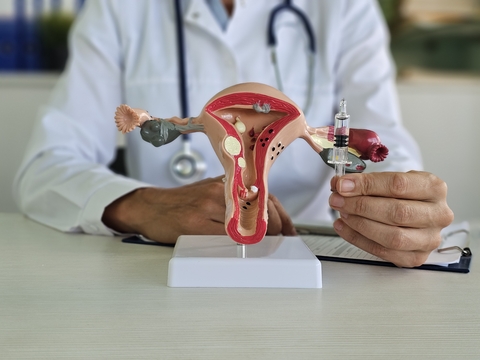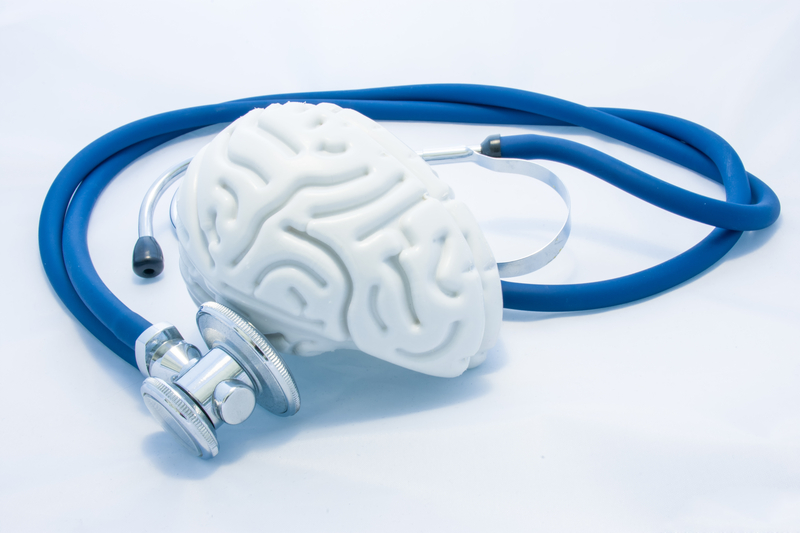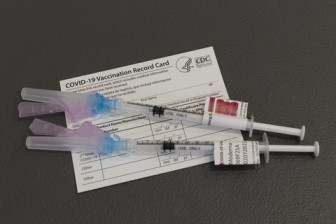- By FYH News Team

Boosting Fertility with Ovulation Induction: A Guide for Women with Irregular Cycles
If you struggle with irregular cycles, ovulation induction treatment can help regulate ovulation and increase your chances of conceiving. This proven fertility solution supports women with conditions like PCOS, hormonal imbalances, and unexplained infertility. In this article, we explore how ovulation induction treatment works, who it benefits, and what to expect during the process. Trying to conceive, but an irregular period cycle is making it hard? This is quite a frustrating experience that brings emotional distress and disappointment. Moreover, you start questioning yourself, “Am I Even Ovulating?”
If you are going through this tough phase, then it’s time to shift from worry to wonder because there is a powerful solution for you named ovulation induction. It’s a proven treatment that offers hope as well as results for women dealing with PCOS, hormonal imbalances, or simply unpredictable ovulation.
In this article, we are going to discuss how ovulation induction works, who it helps, treatment options, and what to expect throughout the process.
So, stay connected!
What is Ovulation Induction?
Firstly, you should understand what ovulation induction means before we move ahead. So, ovulation induction is a treatment that uses medication to help women with irregular or absent periods ovulate regularly. Basically, it’s a way to encourage your ovaries to produce and release a mature egg.
This makes things easier for timely intercourse, or to use other fertility treatments like intrauterine insemination (IUI), or in vitro fertilization (IVF), which all enhance your chances of conceiving.
Ovulation induction treatment is often a good choice for women dealing with conditions such as:
-
- Polycystic Ovary Syndrome (PCOS)
-
- Hypothalamic amenorrhea (when your period stops because of issues with the part of your brain that controls hormones)
-
- Hyperprolactinemia (too much of the hormone prolactin)
-
- Thyroid disorders
-
- Unexplained infertility
Even if you ovulate sometimes but not consistently, ovulation induction can be helpful. It helps regulate your cycles, giving you a better chance of conceiving each month.
How Does Ovulation Induction Work?
This procedure will start with a detailed check-up by a fertility specialist. All they want to understand is what’s going on with your body. This generally involves:
-
- Hormone Tests: These blood tests measure the level of hormones in your body, which give you hints about how your ovaries are working.
-
- Pelvic Ultrasound: This is a special ultrasound that creates images of your uterus and ovaries using sound waves, and ultimately will help the doctor to see if everything looks fine and healthy.
-
- Checking Your Egg Supply: With this, they will get to know how many eggs you have left and how well your ovaries may respond to medication.
Once they have all this information, they’ll create a personalized medication plan to help stimulate your ovaries.
The Medications Used in Ovulation Induction Treatment
When your specialist is clear about your situation, the next step is to use particular medications to support your ovaries. These medications are chosen carefully to support the ripening and release of an egg, and ultimately bring you close to conception. Here are the main types:
Clomiphene Citrate (Clomid)
This oral pill directs your pituitary gland to produce more of a hormone called FSH, which supports your ovaries to grow follicles that contain an egg. Clomid has been in use for many years for women with PCOS or whose reason for infertility isn’t clear.
Letrozole (Femara)
Originally, Letrazole was used for breast cancer, and it has now become a very popular choice for ovulation induction, mainly for women going through PCOS. Its side effects are fewer than with Clomid, and it also lowers the chances of conceiving twins.
Gonadotropins (FSH and LH)
These are injectable hormones that directly stimulate your ovaries. They’re usually used when oral medications aren’t enough, or they’re a common part of fertility treatments like IVF or IUI cycles.
Human Chorionic Gonadotropin (hCG) Trigger Shots
When your follicles are ready or eggs are mature, an hCG shot is given. It’s a signal for them to be released.
Progesterone Support
When the ovulation has occurred, your doctor will prescribe progesterone supplements to prepare and support the lining of your uterus. So that it becomes more receptive for a fertilized egg to implant.
Who Can Benefit from Ovulation Induction Treatment?
Ovulation induction can be a great option for many women hoping to conceive. It’s particularly helpful for those who:
- Don’t ovulate regularly or at all.
- Have conditions like PCOS or other hormonal imbalances that affect ovulation.
- Have been trying to get pregnant for six months to a year without success, and no other clear cause has been found.
- You are preparing for other fertility treatments like IUI (Intrauterine Insemination) or IVF (In Vitro Fertilization).
Sometimes, ovulation induction is also used to encourage the ovaries to produce more than one egg in a cycle. This can be beneficial when preparing for more advanced fertility treatments, as it increases the chances of collecting enough healthy eggs or creating viable embryos.
What to Expect During Treatment
During an ovulation induction cycle, you’ll go through the following:
Starting Medication (Around Cycle Day 2-5)
You’ll start your oral medical course or daily injections in your early menstrual cycle as prescribed by your doctor. They will give you directions on when and how to start.
Monitoring Your Progress
During your cycle, there will be regular blood tests and ultrasounds. These check-ups are very important as they will help your care team track how your egg follicles are growing and keep an eye on your hormone levels. This monitoring will make sure things are going smoothly and you are on the right dose, as ovaries can also react too strongly sometimes and show issues like Ovarian Hyperstimulation Syndrome(OHSS).
The Ovulation “Trigger”
Once the ultrasounds show that one or more of your egg follicles are mature and ready, you might receive an hCG injection. This shot acts as a “trigger,” telling your body it’s time to release the egg.
Timing is Key (Intercourse or IUI)
After the trigger shot, your doctor will give you precise instructions on the best time to have intercourse or when your Intrauterine Insemination (IUI) procedure will be scheduled. This timing is crucial for maximizing your chances of getting pregnant.
Waiting and Testing
About two weeks after ovulation, you’ll take a blood or urine test to see if you’re pregnant. This can be an anxious time, but your clinic will guide you.
Remember, it’s common for this treatment to be repeated over several cycles. Your doctor will work with you to decide the best plan based on how your body responds and your overall fertility goals.
Take care of one thing, that it’s very common for this treatment to be repeated over several cycles. Your doctor will support you in this to decide the best plan for you based on how your body responds and your overall fertility goals.
Final Takeaways
To sum it up, having irregular cycles doesn’t have to put an end to your family planning dreams. It’s really encouraging to see how ovulation induction treatment has helped so many women who struggled to ovulate achieve healthy, successful pregnancies. This treatment truly offers a hopeful path forward.
It just goes to show how much modern medicine can do to help you on your fertility journey. If you’re exploring your options, learning about these kinds of advancements can bring a lot of hope and clarity as you work towards building your family.
Also Read: Abortion Travel Restrictions and Access Challenges in 2024
Trending Topics
Features
- Drive Toolkit
Download and distribute powerful vaccination QI resources for your community.
- Health Champions
Sign up now to support health equity and sustainable health outcomes in your community.
- Cancer Early Detection
MCED tests use a simple blood draw to screen for many kinds of cancer at once.
- PR
FYHN is a bridge connecting health information providers to BIPOC communities in a trusted environment.
- Medicare
Discover an honest look at our Medicare system.
- Alliance for Representative Clinical Trials
ARC was launched to create a network of community clinicians to diversify and bring clinical trials to communities of color and other communities that have been underrepresented.
- Reducing Patient Risk
The single most important purpose of our healthcare system is to reduce patient risk for an acute event.
- Victor Mejia
- Subash Kafle
- Jessica Wilson

















